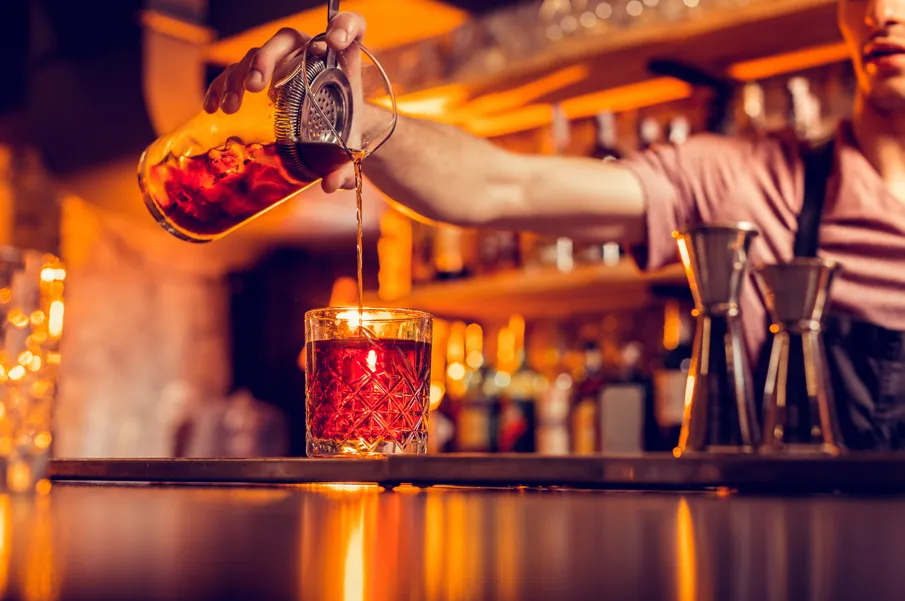
In the dynamic culinary landscape, staying ahead of the curve means constantly seeking fresh ideas and innovative approaches. One often-untapped wellspring of inspiration lies in the realm of retail collaborations. By forging strategic partnerships with diverse retailers, restaurants can unlock a treasure trove of new flavors, ingredients, and concepts that can invigorate their menus and captivate their customers. This extends beyond traditional food suppliers to encompass unexpected allies, including alcohol retailers.
The Spice Rack of Retail
For too long, restaurants have primarily looked to food distributors for menu inspiration. While essential, this can sometimes lead to a degree of homogeneity in offerings. Embracing collaborations with specialty food stores, local artisan producers, and even home goods retailers can introduce unique and high-quality ingredients that set a menu apart.
Imagine a partnership with a local olive oil boutique, featuring a tasting flight of their finest selections alongside your artisanal bread. Or perhaps a collaboration with a spice merchant, resulting in a signature dish infused with an exotic, custom-blended spice rub. These partnerships provide access to exceptional ingredients and offer a compelling story that resonates with increasingly discerning diners. Highlighting the origin and the collaborative nature of these ingredients can add a layer of authenticity and intrigue to your menu descriptions.
Collaborating with Alcohol Retailers
The potential for menu innovation expands even further when considering collaborations with alcohol retailers like Banko Beverage Co. Wine shops, craft beer stores, and even distilleries can be invaluable partners in curating unique beverage pairings and even inspiring new food dishes.
Craft Beer and Culinary Harmony
A partnership with a local brewery could lead to a “beer-infused” menu section. Imagine a hearty stew braised in their signature stout, or mussels steamed with a hoppy IPA. The brewery could host joint tasting events at the restaurant, showcasing the symbiotic relationship between the food and the beer. This attracts beer enthusiasts and encourages diners to explore new flavor combinations.
Wine-Inspired Gastronomy
Collaborating with a wine merchant opens doors to creating dishes that perfectly complement specific vintages or varietals. A rich, earthy mushroom risotto could be designed to pair with a particular Pinot Noir, or a bright citrus salad could be crafted to enhance the crispness of a Sauvignon Blanc. The wine shop could offer special discounts on featured wines to diners ordering the corresponding dish, creating a mutually beneficial promotion.
The Art of the Cocktail and the Plate
Don’t overlook the potential of partnering with distilleries or specialty liquor stores. A restaurant could create a “cocktail-inspired” small plates menu, where each dish echoes the flavor profile of a signature cocktail. Think gin-cured salmon with cucumber ribbons mirroring a classic gin and tonic, or bourbon-glazed pork belly with notes of caramel and spice reflecting an Old Fashioned. Joint cocktail-making workshops and food pairing events could further engage customers and elevate the dining experience.
Cross-Promotional Power and Enhanced Customer Engagement
Beyond the direct impact on menu innovation, retail collaborations offer significant cross-promotional opportunities. Partnering businesses can tap into each other’s customer bases, expanding their reach and attracting new clientele. Joint marketing campaigns, social media collaborations, and in-store promotions can create a buzz and drive traffic to both establishments.
Furthermore, these collaborations can enhance customer engagement by offering unique and memorable experiences. Special tasting menus featuring collaborative ingredients, joint workshops, and “meet the maker” events can create a sense of exclusivity and foster a deeper connection with both the restaurant and its retail partners.
Navigating the Landscape: Key Considerations
While the potential benefits are significant, successful retail collaborations require careful planning and execution. It’s crucial to:
- Identify synergistic partners: Look for retailers whose brand values and target audience align with your restaurant’s.
- Establish clear communication and expectations: Define roles, responsibilities, and desired outcomes upfront.
- Ensure quality and consistency: Maintain high standards for all collaborative offerings.
- Comply with all relevant regulations: Especially important when involving alcohol retailers.
- Promote the partnership effectively: Highlight the unique aspects of the collaboration to your customers.
By embracing the creative potential of retail collaborations, restaurants can move beyond conventional menu development and unlock a world of exciting new flavors and experiences for their patrons. From the artisanal touch of specialty food stores to the innovative pairings offered by alcohol retailers, these partnerships offer a recipe for culinary inspiration and business growth.
